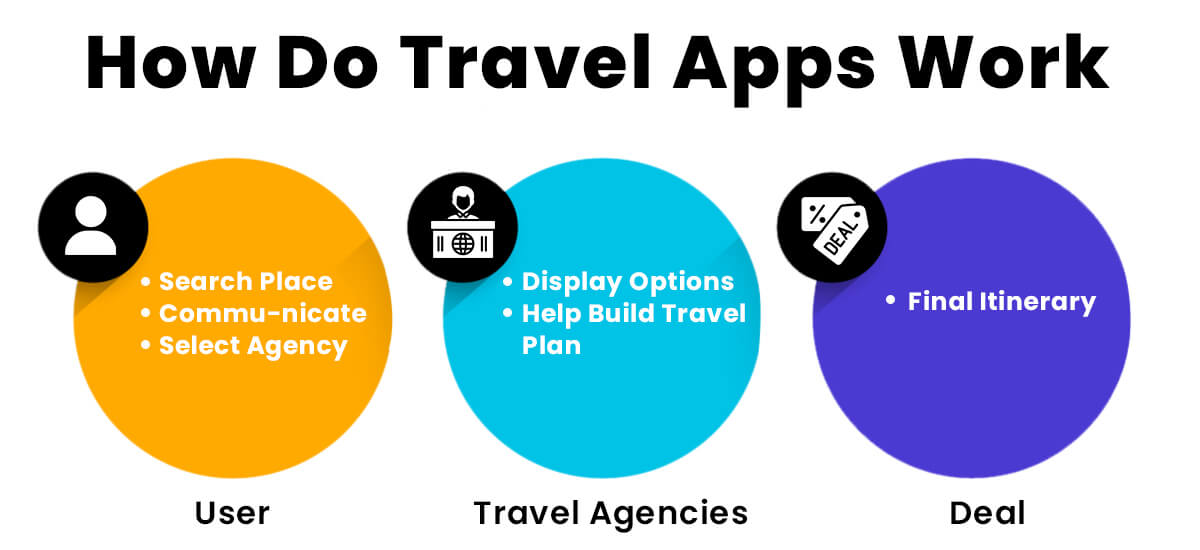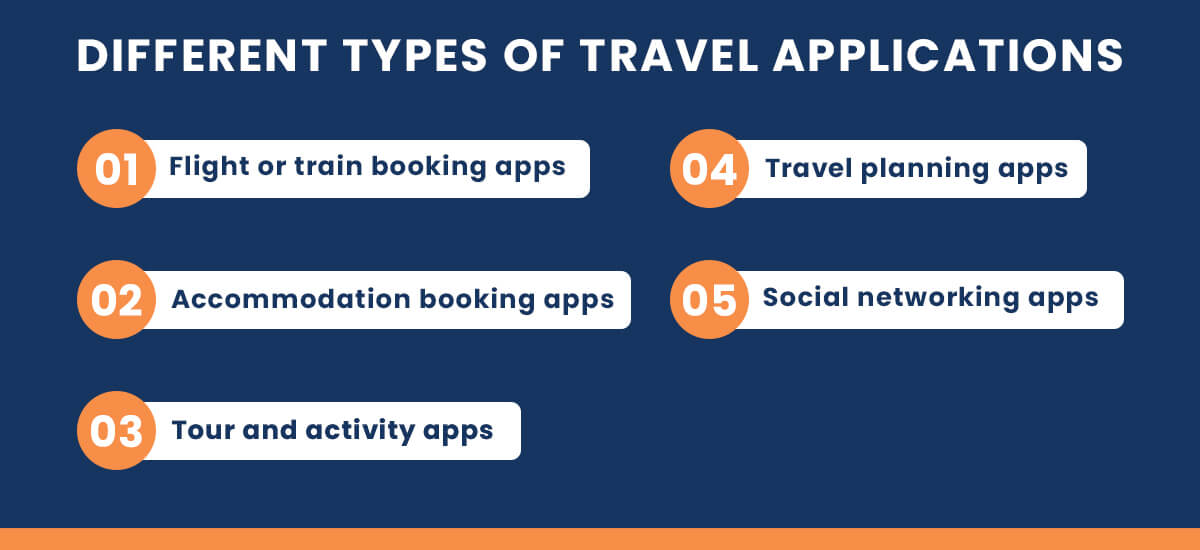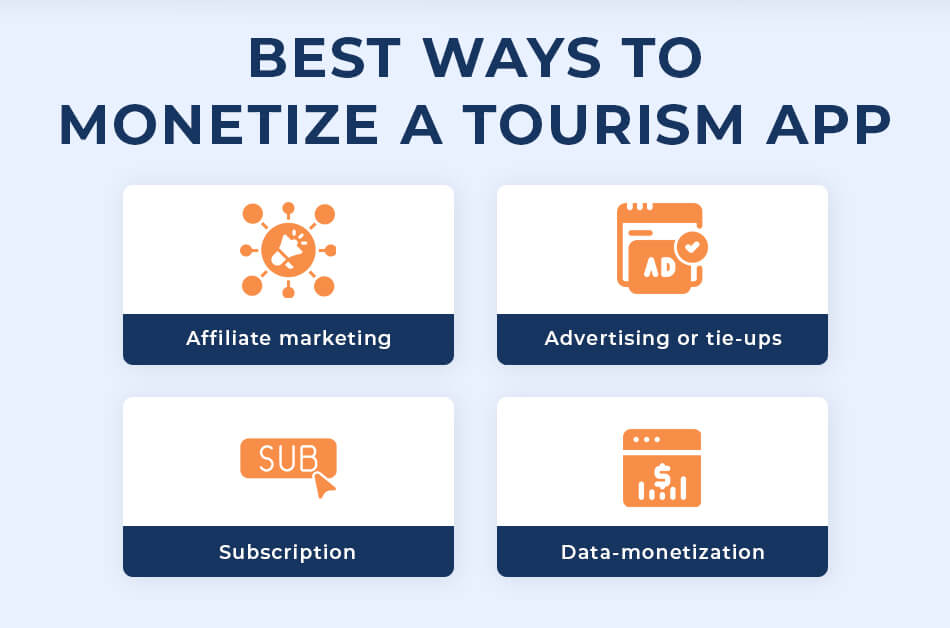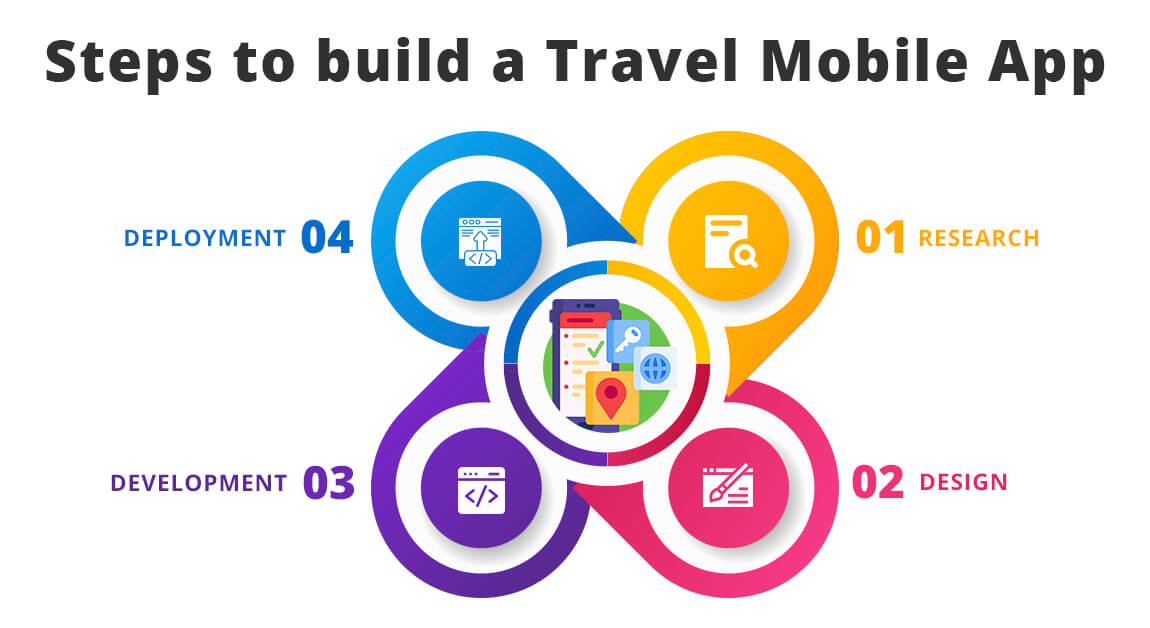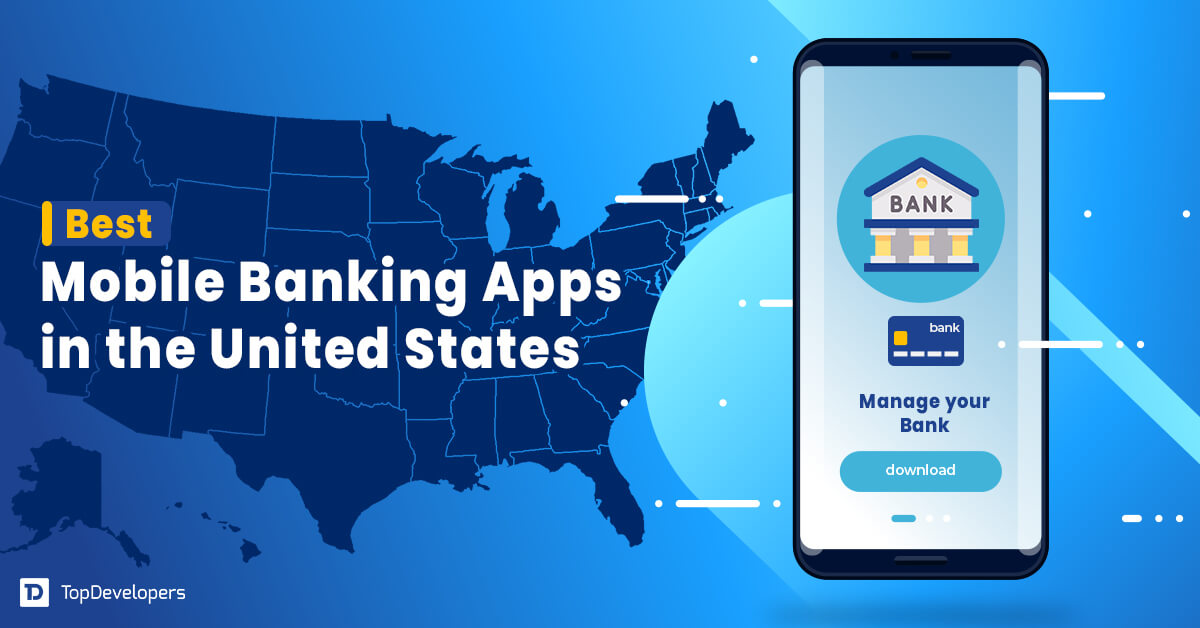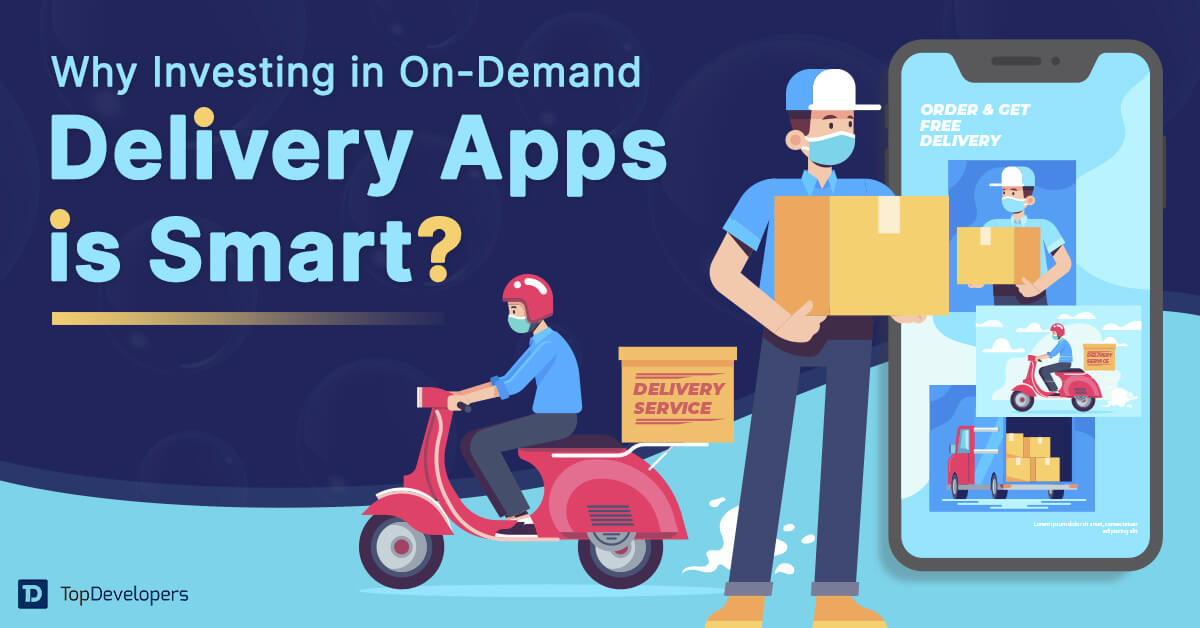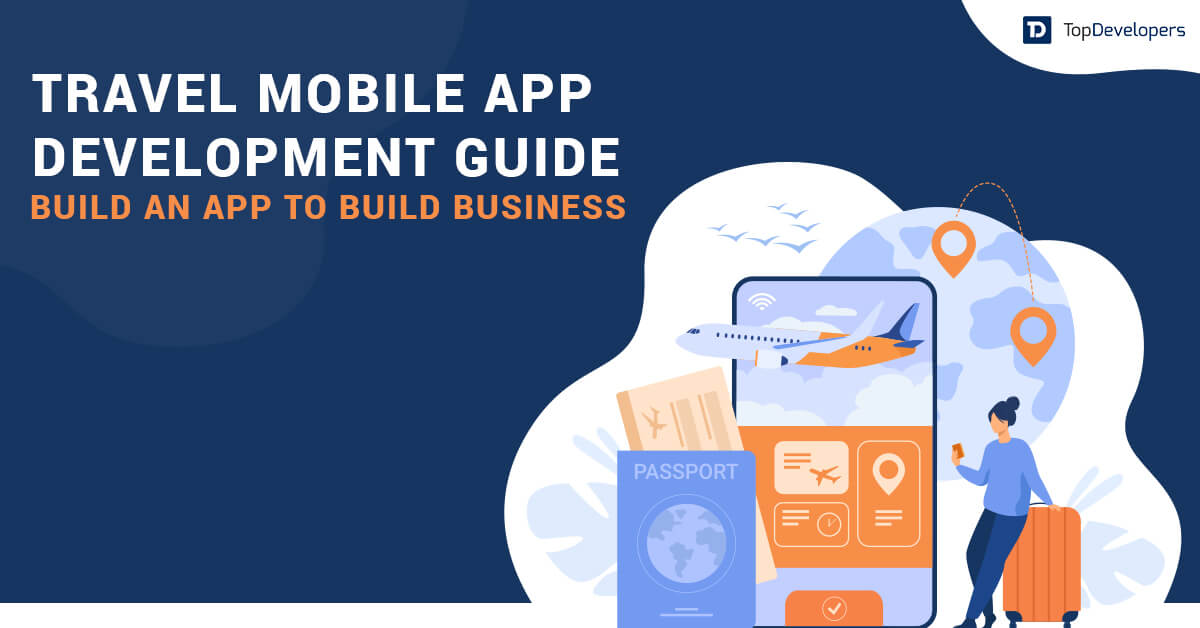
The rapid advancements in technology have made the world relatively easy to travel and explore. Today, one can visit any country or a remote location by surfing the web. When planning trips, most users rely on travel apps as they give them the convenience of planning trips without moving out of their comfort zone.
The tours and travel app development industry is driving huge funds owing to the speedy growth in recent years, and the Statista forecast predicts that numbers are expected to grow in the future. Nearly 70% of travelers around the world search on mobile devices such as smartphones, therefore, justifying the significance of an effective travel app.
Planning for the development of a travel app is a great idea to make considerable profits in the future. To create a travel app, you need to contact mobile app development companies and choose the best one. However, before that, you need a foolproof business model and features, and you have to determine the budget to kickstart the project.
Here we will guide you on building a travel app with all the necessary features starting from travel app design to travel app development cost and the complete road to success.
Table of Contents
- Why Invest in Travel Mobile App Development?
- How do Travel Apps Work?
- What are the Different Types of Travel Apps?
- How do Travel Apps Make Money?
- Eight App Features that every Travel App must have
- Preferred Tech Stack for the Development of Travel App
- How to Make a Travel App?
- How much does it Cost to Build a Travel App?
- Ready to Build a Travel App?
Why Invest in Travel Mobile App Development?
Do you want to revolutionize the travel industry with your amazing idea of making traveling and expeditions easy like never before?
Your business needs to be on mobile devices because that’s where all travelers are looking for hotels, airplane tickets, taxis and cabs, and restaurants. A travel app business plan like Airbnb is the right idea to make consistent profits in the near future. Contacting talented travel app developers to build a customized app can be a lucrative investment for businesses in the travel and tourism industry.
Here are some reasons why –
- The increasing popularity of mobile devices among travelers.
- Convenient travel planning at the fingertips.
- Personalized travel recommendations by using data and preferences.
- Travel mobile apps provide real-time updates to users.
- A cutting-edge travel app introduction to your clients gives you a competitive advantage.
- It can elevate user experience and increase customer satisfaction and loyalty.
A Step-by-Step process to Start Online Travel Business like Airbnb
How do Travel Apps Work?
Nowadays, all travel agencies launch travel apps not to list hotels or book airline tickets, but they want to engage their audience for a much bigger point: sales
A good travel app will compose the following qualities –
- List of hotels and resorts in different travel destinations.
- Reviews and ratings from genuine travelers.
- Exclusive tours and expeditions guide for users.
- Cost management to make travel budget-friendly.
- A filter system to help users in making customized research.
- Search options to find their preferred location, hotel, restaurant, and more.
One can take inspiration from some popular travel apps such as TripAdvisor, Airbnb, Booking.com, AroundMe, and Hopper, which also offer premium services like travel insurance and additional services to make traveling quite easy and sophisticated.
Users, here passengers, or tourists, would use the travel app to search for their favorite touring options or travel guide. They would either chat live, send a message, or simply ask to call back the travel agencies. The communication is built for further discussion and digital platforms are used to show audio-visual content before the deal is finalized and the itinerary is sent.
What are the Different Types of Travel Apps?
There are diverse travel applications available in the market, and each has distinct features and functionalities for its users.
Here are some of the most common types of travel applications –
Flight or train booking apps: to book tickets or compare prices from different travel and tourism agencies.
Boat rental apps: to book boats or yachts to charter for rent.
Accommodation booking apps: to book resorts, hotels, and vacation rentals with the facility to check availability and room selections.
Tour and activity apps: to help users find the best sightseeing places to visit on their trip and do the activities such as sports and adventure.
Travel planning apps: to provide a complete guide to users, starting from finding cheap flights and hotels and recommending adventurous activities.
Social networking apps: to connect all travelers to get the best tips and advice.
Travel Journals: write and post about your travel experience with other travel enthusiasts and the one who are looking for adventure.
Other industry experts also suggest the following travel app types that could be built separately or integrated into super travel apps –
- Travel Insurance
- Currency conversion
- Language Translation
- Transportation and logistics
- GPS/navigation
- Virtual tour and travel deal alert
- Photo/videography apps
- Travel finance
- Couchsurfing
How do Travel Apps Make Money?
Learning about monetization in the travel industry is essential as it plays a deciding role while developing a travel app.
Here are some of the best ways to monetize a tourism app –
Affiliate Marketing
One of the main sources of income for travel apps is commission on bookings made via their platform. For example, a travel booking app development might earn a small commission fee from the airline for encouraging users to travel and book tickets from the airline. Put, travel apps make money via affiliate marketing for every sale occurring via referral links.
Advertising or tie-ups
Apart from commission or the affiliate model, most travel apps make money via advertisements or promotional activities on their platform. Travel apps charge money to display products or services of businesses to their users. For example, every traveler needs a travel bag. Therefore, travel bag manufacturers might love to post ads about their bags on popular travel apps or simply tie up with them.
Subscription
Some popular travel apps also charge a small subscription fee from their users to give them exclusive traveling deals and access to premium content and personalized recommendations or notifications. For instance, in a hotel booking app development, a feature of subscription is possible wherein special discounted prices are applied to subscribers.
Data-Monetization
One more popular way of making money from travel apps is by collecting and selling traveler’s user data to third-party advertisers or improving their services or products.
You can select a mobile app development company that helps to implement different monetization strategies in your travel mobile application.
Eight App Features that every Travel App must have
Here are the top features of a travel app you should keep in mind while developing your product –
Login or Signup
The signup or login feature is one of the most important features of a travel application. Undoubtedly, users hate to log in whenever they want to use the app. On the other hand, when the concern is about booking, payment details, and chatting, one must complete the registration process.
One of the easiest ways to create an account for a user is via email and phone number. In addition, most apps also offer the feature of social login, where users can log in with a Google or Facebook account.
Registration also ensures the user is ready to accept the terms of services from the application, making it an important aspect during travel application development.
Search Bar
A search bar is essential for a travel app for users to swiftly and conveniently look for certain locations, lodgings, flights, or activities. By enabling tourists or travelers to enter their choices and filter their search results based on particular criteria like budget, location, dates, and facilities, a search bar can also help to personalize the user experience.
Any travel app must have a search function since it makes it easier for users to find what they’re looking for quickly and effectively, which enhances their overall app experience.
Booking Tickets and Services
Travel apps need booking services since they enable customers to comfortably and easily book their travel plans through the app. Flights, lodging, auto or vehicle rentals, excursions, and other activities can fall under this category. Users don’t have to visit other web or mobile apps or call different phone numbers to make their trip reservations because these booking options are available within the app.
As mentioned above, enabling booking services within the travel application will also ensure the application can generate revenue via bookings. It can also help the application provide personalized recommendations to the user, encouraging customer satisfaction and loyalty. Booking features make a travel app more valuable for the users and contribute to enhancing the overall user experience of the travel and tourism app.
Ratings and Review
Every time users want to explore or travel to a new destination, they would love to learn more about the trip, leading them to travel apps. Ratings and reviews from other travelers will help all the users during their journey.
On the other hand, ratings and reviews also play a crucial role for travel business owners to understand what customers search for within their applications. They can use this information and make their application more user-friendly for customers
Messaging or Chatting Feature
Any travel app must have a message and chat capabilities since they allow travelers to interact with one another, plan trips together, and access customer care in real time. These functions offer a forum for information exchange, knowledge sharing, and more effective travel planning.
Moreover, message and chat capabilities can help create a sense of community among users of travel apps. By enabling communication between travelers and tourists, you are creating a welcoming environment where users can exchange advice, suggestions, and experiences with people who share their interests which in return helps to build a brand name for your travel platform.
Safe Payment Gateway
A safe payment gateway is a crucial feature for a travel application as it enables users to make safe and convenient payments via trusted sources. Payment gateways provide the necessary security during the transaction of money for payment. For instance, paying for flight booking or hotel booking while traveling. It also protects the data of the user while doing transactions from being manipulated. In addition, payment gateways also allow users to complete their transactions quickly.
Listings
Users will re-visit a travel mobile application only when it has a good amount of quality data that can help them make their travel easier and smoother. Having detailed listings on a tourism application can help users make effective decisions. For example, if a user plans to book a hotel via a travel app, having detailed information about the hotel, like photos, location on the map, and cancellation policy, will make the searching of travel app users easier.
One can also provide room to hotel and cab owners to add listings within the travel application, making it trustworthy.
Push Notification
Push notifications are paramount for travel applications as they help to retain and engage existing users. Whether about a new offer or a cracking deal, push notifications can add the advantage of driving user attention within an application.
Such notifications can also help users with last-minute travel plan changes, flight delays, or booking changes, therefore, helping them in saving a lot of time. All in all, push notifications are a fantastic way of communicating with potential users and engaging them within your travel application.
Preferred Tech Stack for the Development of Travel App
Generally, a tech stack is a group of technologies and frameworks that top travel app developers use to create travel applications.
- UI/UX: CSS, Google Sketch, Adobe Photoshop
- GPS-based: Google Maps, the core location framework for iOS
- Cloud data storage: AWS, Google Cloud, Microsoft Azure
- Payment gateways: Paypal, Braintree, Netbanking, eWallets
- Programming: CSS3, Bootstrap, JavaScript, Angular.JS, Ruby, Python, Django
- Development: Android, Java, Swift
How to Make a Travel App?
You may refer to a mobile app development process guide available on the Internet to have a fair knowledge of how things work. Here are the steps that your travel app development would follow. Assuring that each of these steps is in the right place, you would have a customized product up to your expectation.
Research
The first step is to do market research, determine the target market, and ascertain the requirements and preferences of travelers. Analyzing competition, user behavior, and feedback from prior trip experiences are part of this process.
Design
After determining the target audience and their demands, the next step is to build a travel app UI for a memorable user experience. This includes developing prototypes and wireframes that describe the travel mobile app design, functionality, and features.
Development
After the travel app is designed, the next step is to code its front and back end, including third-party APIs and services, and test its performance and functionality. It is highly recommended to rely on a reliable travel app development service provider.
Deployment
After the travel mobile app has been created, tested, and marketed to potential customers, the last step is to upload it to the app stores.
It’s crucial to remember that creating a successful travel app necessitates regular upkeep and upgrades, constant user input, and active participation.
How much does it Cost to Build a Travel App?
The total travel app development cost depends on various factors. You can hire the best travel app development company that offers you mobile apps at affordable rates. Nevertheless, the cost also depends on the platform the app is developed.
One must also consider the maintenance and support charges post-production, which will depend on the application’s performance; nevertheless, industry experts suggest a range between USD 5000 and 500000 for a fully-customized travel application.
Depending upon the features, size, developers’ expertise, and experience the time and cost to develop a travel app may get increases or decrease.
Ready to Build a Travel App?
Producing a travel app requires an all-encompassing strategy that includes comprehending user wants, seeing market potential, and designing an intuitive user interface.
Researching the market, identifying the target audience, choosing the appropriate platform and technology stack, creating a user-friendly interface, and integrating necessary features like booking and payment systems are the key steps in developing a successful travel app, as is in this guide.
FAQs About Travel Mobile App
How do I create a mobile travel app?
One must conduct market research, identify the target market, choose the best platform and technology stack, design a user-friendly interface, and integrate key features like booking, support, and payment systems in order to create a mobile travel app.
How to earn money via travel apps?
Many different methods, including a commission from bookings, advertising, subscription fees, and in-app sales, are used to monetize travel apps.
How do I start an online travel business?
In order to start your own online travel business, you must have a firm grasp of the target market’s requirements, be able to see market opportunities, and work with a skilled travel app development team to create the travel application or system.
How do I generate profit from my travel app?
A travel app can be profitable in several ways, such as adding commission fees to bookings, charging for premium features, displaying targeted advertisements, and selling user data to other service providers. These are some of the ways.
How much should I pay for app development for my tours and travel business?
It starts between USD 5000 and 500000. The project’s complexity, the features and functionalities needed, the experience and location of the development team, and the cost of developing an app are all factors. Before choosing a development partner, obtaining different quotations and evaluating the costs is a good idea.
 Avantika Shergil
| Mar 24, 2023
Avantika Shergil
| Mar 24, 2023
Avantika Shergil is a technology enthusiast and thought leader with deep expertise in software development and web technologies. With over 8 years of experience analyzing and evaluating cutting-edge digital solutions, Avantika has a knack for demystifying complex tech trends. Her insights into modern programming frameworks, system architecture, and web innovation have empowered businesses to make informed decisions in the ever-evolving tech landscape. Avantika is passionate about bridging the gap between technology and business strategy, helping businesses build customized software and website, and understand about different tools to leverage effectively for their ventures. Explore her work for a unique perspective on the future of digital innovation.
